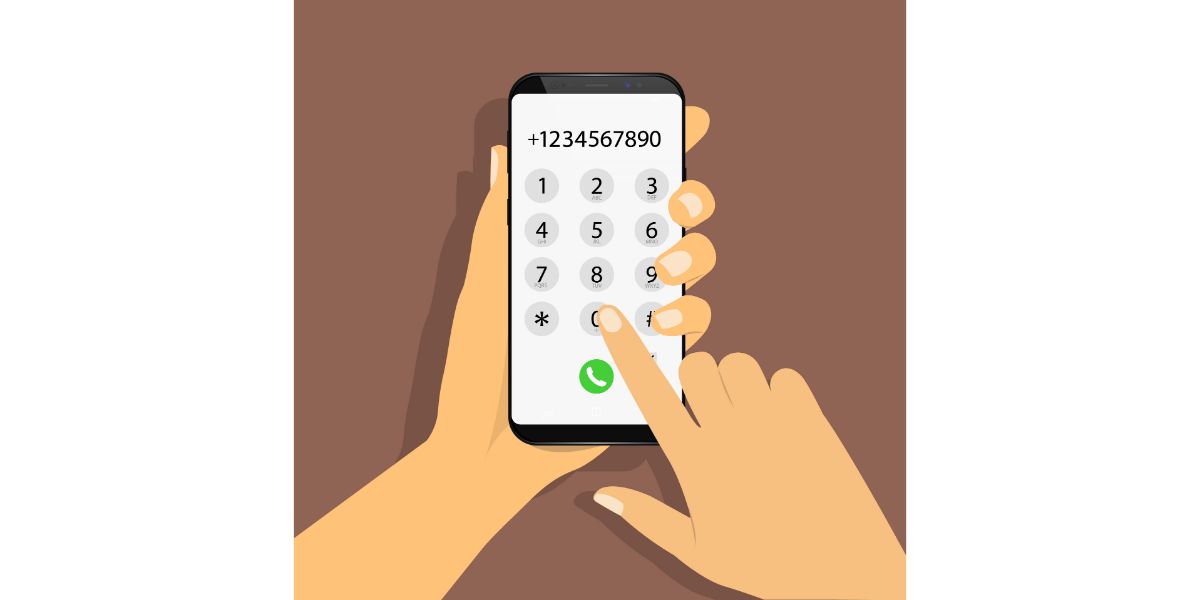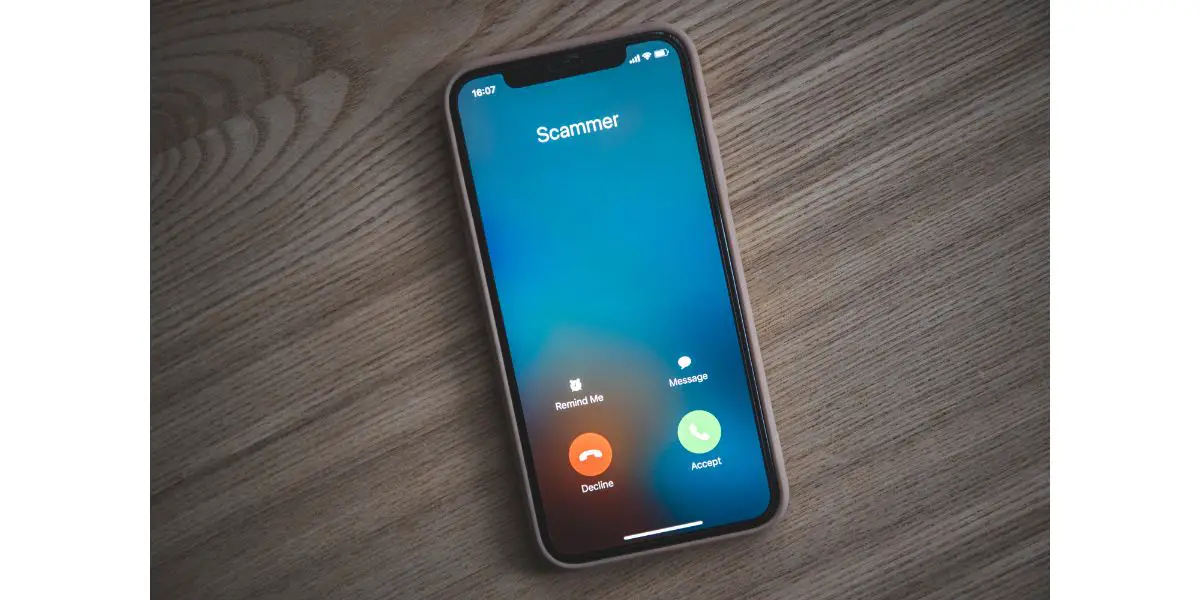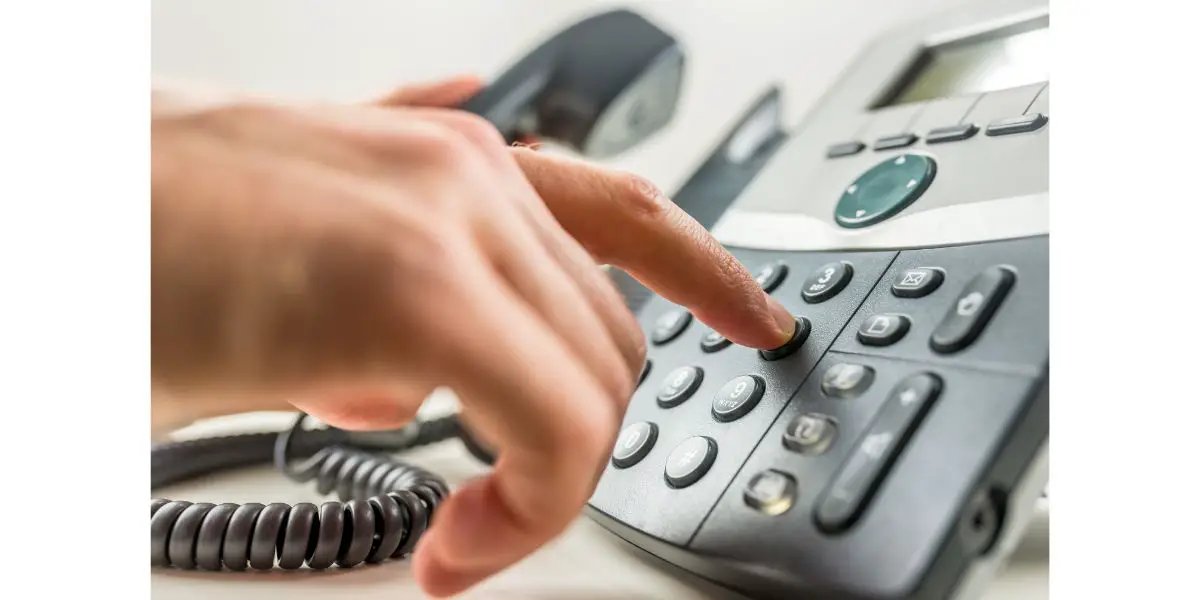Disclaimer: This post may contain affiliate links, meaning we get a small commission if you make a purchase through our links, at no cost to you. For more information, please visit our Disclaimer Page.
Getting an error message when trying to contact someone via phone can be frustrating, especially if you aren’t sure what the message means in the first place! An unallocated number can appear for a few reasons, so we will run through the most common Q; As about them below.
Table of Contents
What Does an Unallocated Number Mean?
An unallocated number is a valid phone number that isn’t assigned to a subscription. Ok, but what does that mean? Let’s break it down in simple terms.
Every country has one or several administrators who assign giant groups of phone numbers to phone providers. An administrator called the Federal Communications Commission (FCC) has full jurisdiction over telephone numbering in the U.S. They oversee the 10-digit number system in the region, which is called the North American Numbering Plan.
The FCC is the regulator that assigns numbers to big and small American phone providers, like AT;T, Verizon, and T-Mobile.
Providers may receive a large batch of numbers that are real and ready to use, but they don’t assign them until they have enough customers who want to open up new phone lines. The numbers that are not yet assigned are called unallocated numbers.
Who Creates Unallocated Numbers?
Unallocated numbers are created by the FCC. They can all be used in the U.S., with the international dialing code of +1. Any provider may have the rights to that number, but it won’t work until they get a customer – AKA subscriber – who activates the number to use.
A number could also have been active at one point and then switched to an unallocated status for reasons we’ll discuss below.
Can an Unallocated Number Be Used by an Individual?
Unallocated numbers can be used by individuals in a few circumstances. An unallocated number can be assigned to a new subscriber, become active, and no longer be unallocated. This means you could call a number one day and get the error message, then call back a few hours later and connect with the number’s new user.
Unallocated numbers are also often used as a “spoof,” when a scammer makes it seem like they’re calling you from an unallocated number; however, this information is falsified so you don’t see their real identity and phone number.
Why Did I Receive the Unallocated Number Message?
The unallocated number message is only received when you make an outgoing call. You will not receive a call with the caller ID displayed as an “unallocated number,” although you could get an incoming call spam warning.
There are three main reasons you may have received the unallocated number message: dialing an incorrect number, calling back a scam phone number, or calling an expired number.
1. Dialing the Wrong Number
We’ve all been found guilty of calling someone haphazardly only to realize we have dialed the wrong number. The first step is to double-check that you’ve called the right number. Then, make sure that number is from the person or place you want to contact.
Give them a call a second time from your phone. If you still experience this issue, you may want to try out calling from a landline or another phone. This will make sure the issue isn’t with your cell phone or connection.
If you run into the same issue after a third try, the number you have may be wrong or it could have expired.
2. Receiving a Scam Call
You may have a missed call from a number or two that seem local. Many people may return the call to ensure they aren’t missing a chance to connect with someone important – especially if they’re already expecting a call from someone essential, like a new employer.
If you call back a missed-call number and receive the unallocated number error message, try calling back one more time and checking the number as stated above.
If you still receive the unallocated number message, you may have gotten called by a scammer. Scammers use something called “spoofed” numbers. This is when the caller falsifies the transmitted caller ID information to disguise their identity.
They may use an unallocated number or, worse, a real person’s phone number who has nothing to do with the call. This helps scammers seem like local companies or individuals as they try to steal your money or personal information.
If you think you’ve fallen victim to a spoofing scam, you should file a complaint with the FCC.
3. The Number Is Expired
Phone numbers can expire, cutting off the service from a once-working number. This usually happens when the user stops recharging a prepaid phone, paying their subscriber’s bill, or using the number for a certain time.
You may have called a number yesterday that worked fine only to get the unallocated message when calling a day later. This means there is an issue – likely financial – with the user and their phone company.
If other people have told you that your number is unallocated, you should reach out to your provider immediately to remedy the situation. Most expired numbers under these categories can be reactivated by contacting the subscriber and paying any overdue charges. The details will depend on your provider.
Many numbers may also expire if the SIM card isn’t used for a certain amount of time. Typically, after three months to a year, a company can deactivate a SIM card that hasn’t been used and return the phone number to their unallocated pile.
If your SIM card has been deactivated completely, you won’t be able to reactivate it and may be assigned a new phone number and SIM card altogether.
Why Is My Number Unallocated?
If you are told your number has become unallocated, call your provider immediately. They will be able to see if it’s an account or network issue. If both of those check out, you may have an issue with your SIM or phone.
1. Overdue Bills
Your number may be rendered inactive or unallocated if you are overdue on your phone bill. Perhaps the bill got lost, you fell behind on last month’s numbers, or you weren’t aware of a pending charge to begin with.
These numbers can usually be reactivated by contacting the subscriber and paying any overdue charges.
2. Network Issue
Sometimes, a temporary network issue will block access to a phone number because of a bug, outage, or another problem. Network issues tend to fix themselves within the day, but you can call your subscriber to test this theory; they should be able to tell you about any local network issues and test your phone.
3. Device Issue
In rare cases, you could have an issue with your SIM or phone that blocks your number from working. Try popping your SIM into another unlocked phone and calling it to see if it works. If it does, the issue is within your phone. If it doesn’t work, you may have a defective SIM card.
Are an Unallocated Number and a Number Not in Service the Same Thing?
An unallocated phone number may not be used by anyone, but a phone not in service may be out of the network range. If you are far from a cell tower, your phone could become “not in service” until your connection is re-established.
If Someone Blocks Me, Does It Say Their Number Is Unallocated?
When someone blocks your phone number and you try to call them, the phone will usually ring and go to voicemail or go straight to voicemail.
You won’t get an error message. Many phones allow you to leave a retrievable voicemail, although the receiver will have to access it from a special folder for blocked contacts.
Final Thoughts
An unallocated number could be caused by an overdue phone bill, an unassigned number, an expired number, a spoof number, or a network or device issue. With a little troubleshooting, you should be able to find the reason for your call troubles in no time.



